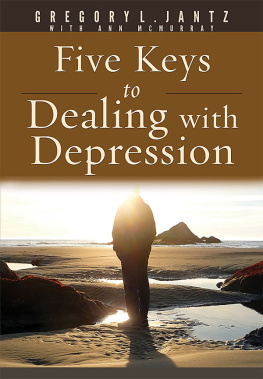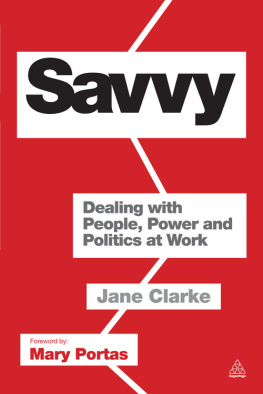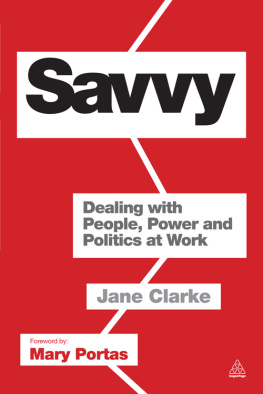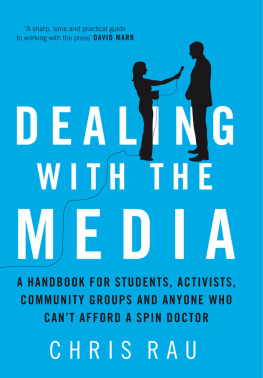
Great Clarendon Street, Oxford, OX2 6DP,
United Kingdom
Oxford University Press is a department of the University of Oxford.
It furthers the Universitys objective of excellence in research, scholarship,
and education by publishing worldwide. Oxford is a registered trade mark of
Oxford University Press in the UK and in certain other countries
Sarah Clarke 2013
The moral rights of the author have been asserted
First Edition Published in 2013
Impression: 1
All rights reserved. No part of this publication may be reproduced, stored in a retrieval system, or transmitted, in any form or by any means, without the prior permission in writing of Oxford University Press, or as expressly permitted by law, by licence, or under terms agreed with the appropriate reprographics rights organization. Enquiries concerning reproduction outside the scope of the above should be sent to the Rights Department, Oxford University Press, at the address above
You must not circulate this work in any other form
and you must impose this same condition on any acquirer
Crown copyright material is reproduced under Class Licence
Number C01P0000148 with the permission of OPSI
and the Queens Printer for Scotland
Published in the United States of America by Oxford University Press
198 Madison Avenue, New York, NY 10016, United States of America
British Library Cataloguing in Publication Data
Data available
Library of Congress Control Number: 2013937376
ISBN 9780199672950
Printed in Great Britain by
CPI Group (UK) Ltd, Croydon, CR0 4YY
Links to third party websites are provided by Oxford in good faith and
for information only. Oxford disclaims any responsibility for the materials
contained in any third party website referenced in this work.
FOREWORD
For over 30 years, insider dealing has been unlawful in this country, and for nearly 80 years, it has been unlawful in the United States. The law now in force here reflects and implements the 1989 EU Insider Dealing Directive. It is, like so many other laws, complex. It can catch the unwary, as well as the dishonest, and may result in significant terms of imprisonment for the offender and significant reputational damage for employers. The fact, as the author points out, that some argue that insider dealing is positively beneficial to the market, will be of little comfort as the prison doors clang shut and the inevitable confiscation order bites. Most will agree with the author that insider dealing is simply cheating.
Sarah Clarkes book is a must for all those directly or indirectly involved in financial markets, whether as compliance officers, traders, accountants, or lawyers. Each of these can have significant information that he or she knows but other market participants dont. Disclosure of that information whether dishonestly or unwarily on the 18th tee can lead to prosecution or civil proceedings. A compliance officer in any company linked to the financial markets will be failing in his or her responsibilities if a copy of this excellent book is not readily available. Accountants and lawyers need the book to avoid insider dealing and to advise those caught up in an investigation or in criminal or civil proceedings. Regulators will find the book invaluable. Judges required to try insider dealing cases or hear final or interlocutory appeals in insider dealing cases (as I have had to do), will likewise find the book invaluable.
The book has the added advantage of explaining in to those not closely involved in the financial markets how the markets workfrom ordinary dealing through to spread betting.
I recommend the book enthusiastically to anyone at risk of insider dealing or those involved in advising on potential insider dealing. Sarah Clarke is to be congratulated.
The Right Honourable Sir Anthony Hooper
Associate Member Matrix Chambers
PREFACE
My aim in writing this book is to provide a thorough, practical, and straightforward guide to this complex area of law. This book deals with the development of the criminal insider dealing regime (Part V of the Criminal Justice Act 2003 (CJA)), and offers an analysis of the current law and a guide to the issues of practice and procedure that arise in such cases. It also deals similarly with the civil market abuse regime contained in Part VIII of the Financial Services and Markets Act 2000 (FSMA), although it is deliberately confined to the insider dealing types of behaviour which amount to market abuse contained in s 118(2)(4) of FSMA, rather than the four other ways in which market abuse can be committed. This ensures that the book remains true to its purposeto provide a thorough yet focused treatment of insider dealing law as it arises in the criminal and civil context.
Historically, insider dealing prosecutions and market abuse proceedings relating to insider dealing type conduct, have been few and far between. This was due to the complexity of the law, the difficulty of the issues and the negligible success rate. In 2000, the responsibility for taking action in respect of insider dealing was given to the newly created Financial Services Authority (FSA) which was given the power to bring prosecutions for the criminal offence, or bring civil proceedings for market abuse. However, it was not until the arrival of Margaret Cole as Director of the FSAs Enforcement Division in 2005 that the FSA (now the Financial Conduct Authority, FCA) began instituting criminal insider dealing prosecutions and civil market abuse proceedings in earnest. At this time, I had recently commenced employment in the FSAs Enforcement Division as a Technical Specialist and In-House Counsel, where for the next six years I advised on and acted in a number of these cases for the FSA. What was striking during this period, was how little jurisprudence and legal text or reference material there was on this subject. A good deal of the jurisprudence that now exists was created during this time.
Since my return to private practice at Serjeants Inn Chambers in 2011, I have had the privilege to see these cases from both sides. The reality is that not only are insider dealing and market abuse cases increasing in number, they are also increasingly wide-ranging and increasingly serious. What this means is that ever larger numbers of practitioners, firms, and individuals are coming into contact with insider dealing investigations and proceedings, either as advisers, suspects, employers of suspects, subjects, defendants, applicants, or witnesses. This book aims to provide these persons, the lawyers, and compliance specialists who advise them and the judges and tribunal panel members who try them, with a route map through the practice and procedure of an insider dealing investigation and prosecution or civil action for market abuse. In so doing, I have sought to provide a comprehensive guide to insider dealing legislationboth criminal and civilcombined with a practical approach to the topic and to identify the challenges for both sides that are inherent in these cases. In short, what I have aimed to do is write the text book that I would have liked to have read seven years ago and had by my side during the intervening years.














